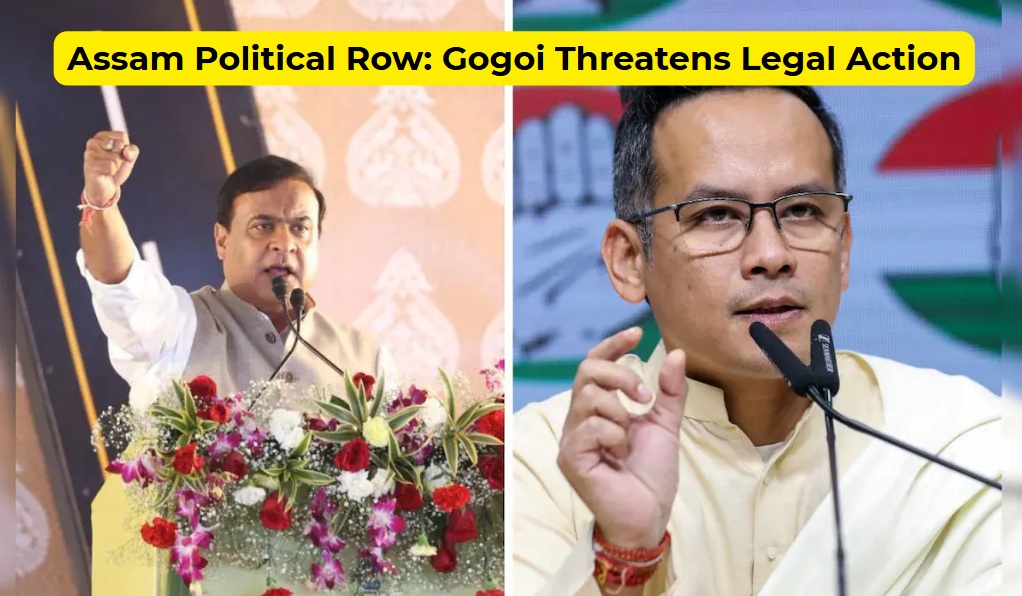Rahul Gandhi, Leader of the Opposition in the Lok Sabha and a key figure in the Indian National Congress, is set to embark on a visit to the United States from April 19. The trip, described by party sources as a private tour, includes planned engagements at Brown University and an interaction with members of the Indian diaspora in Boston.
While the Congress party has framed the visit as non-political, the timing and context have drawn sharp reactions from political commentators and leaders across the spectrum.
A Familiar Itinerary Amid Changing Contexts
Rahul Gandhi’s foreign visits have become frequent and, at times, controversial. His last tour to the US in September 2024 included a three-day stopover in Dallas, where he interacted with students and faculty at the University of Texas. The upcoming tour to Brown University reflects a continued focus on academic institutions and diaspora outreach.
However, this visit is significant for a number of reasons. It marks Gandhi’s first US tour since Donald Trump returned to the White House for a second term. Trump’s renewed presidency has brought with it a tightening of policies around immigration, academic activism, and foreign influence, especially concerning institutions known for liberal and left-wing politics—such as Brown University.
Brown has recently found itself in the headlines for its internal political dynamics and disciplinary action against students and faculty members accused of supporting controversial causes, including alleged links to anti-American groups and support for radical activism.
In this context, Gandhi’s choice to visit Brown University—described by some commentators as a “hub of global progressive activism”—has raised eyebrows.
The Political Timing and Domestic Optics
Rahul Gandhi’s visit comes at a time of considerable political flux within India. The Congress party is grappling with internal unrest in states like Kerala and Karnataka, uncertainty in alliance formations ahead of the Bihar assembly elections, and growing pressure to present a coherent national narrative against the BJP-led government.
Critics from the ruling BJP have seized upon the timing of the trip, accusing Gandhi of being absent during key political moments. Party spokespersons have questioned the utility of repeated foreign engagements, especially at a time when the Congress party is struggling to mobilize effectively at the grassroots level.
BJP leaders have also questioned the lack of transparency around Gandhi’s travel itineraries, pointing to his recent, unexplained visit to Vietnam during the Holi period, which lacked any official communication or media visibility. They claim such visits raise doubts about his political seriousness and commitment to domestic responsibilities.
Recurring Themes: Criticism Abroad and Fallout at Home
Rahul Gandhi’s international tours frequently include public criticism of the Modi government. He has repeatedly flagged concerns about democratic backsliding, rising communalism, and the curtailment of civil liberties in India. These statements, often made at prestigious international forums or universities, have become a political flashpoint.
The BJP has accused Gandhi of “airing India’s internal matters on foreign soil” and undermining the country’s image globally. In response, Congress leaders argue that Gandhi is exercising his democratic right to express concerns and is engaging with a global Indian audience that deserves transparency about developments back home.
Political analysts note that such narratives, while resonating with sections of the diaspora and liberal international audiences, often backfire domestically, where nationalist sentiment is high and foreign criticism of internal matters is seen as a breach of political protocol.
A Visit Under Watchful Eyes
This US tour is expected to be closely monitored—not just by Indian political parties, but also by US authorities. With ongoing discussions between India and the US on critical technology partnerships, defense cooperation, and regional security—especially in countering China—the optics of this visit matter.
Trump’s administration has made it clear that it is taking a tougher stance against leftist activism on campuses, and foreign visitors engaging with these groups may invite scrutiny. Gandhi’s associations, past engagements, and the content of his speeches will likely be analyzed by both governments and political observers.
Furthermore, his engagement with the Indian diaspora could serve dual purposes—reinforcing his global outreach while also acting as a platform to test new messaging strategies ahead of the 2025-26 state elections.
What Lies Ahead?
Rahul Gandhi’s US visit once again spotlights the delicate balance between international image-building and domestic political credibility. As India asserts itself on the global stage, its opposition leaders, too, are seeking space in international discourse. But for Gandhi, this ambition comes with a paradox: while he seeks to be seen as a global statesman, his absence from key political battlegrounds at home often weakens the very mandate he wishes to strengthen.
In a hyper-connected era, political messaging travels faster than intent. What is said at Brown University may echo not just in Boston halls, but in Parliament, newsrooms, and constituencies across India. At a time when the Congress party is navigating existential challenges—from leadership crises to electoral uncertainties—symbolism must give way to strategy, and speeches abroad must complement action at home.
Rahul Gandhi stands at a crossroads: he can either use this moment to craft a more coherent, forward-looking political vision that resonates with both global and Indian audiences, or risk reinforcing the narrative of a leader more comfortable speaking about India from afar than engaging with India up close.
This trip, then, is more than a tour. It’s a test—of judgment, of timing, and of political maturity. Whether it becomes a turning point or just another headline will depend not on where he goes, but on what he chooses to say—and whether he’s finally ready to lead, not just speak.





